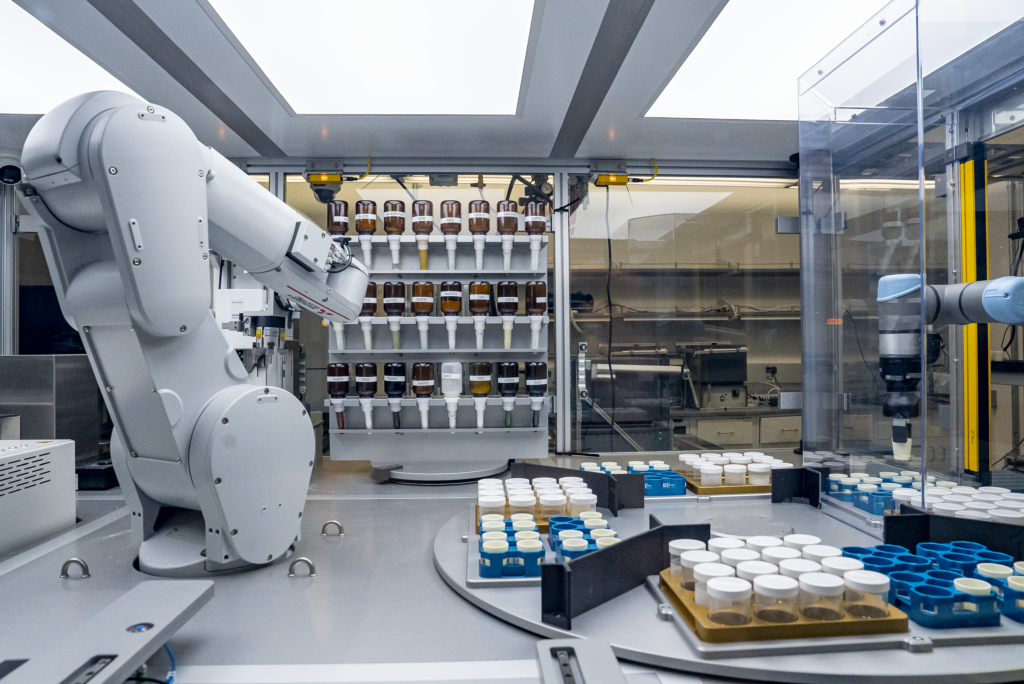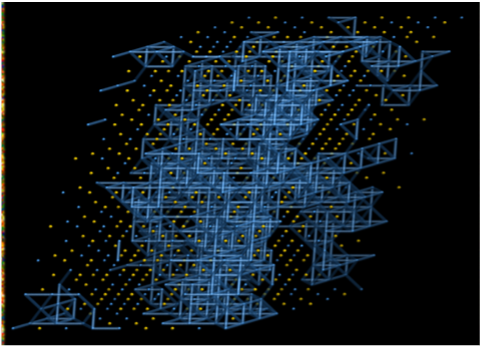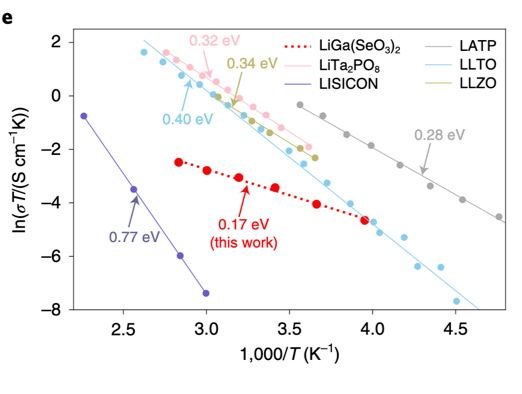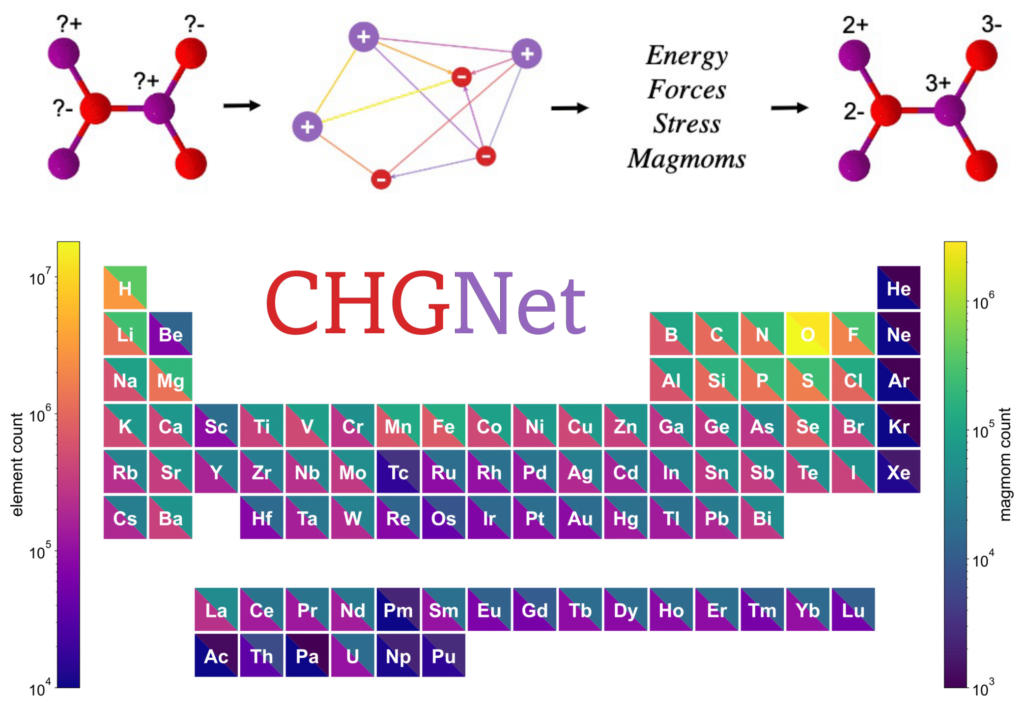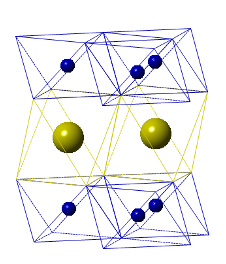The group of Professor Gerbrand Ceder at the Department of Materials Science and Engineering at UC Berkeley and Lawrence Berkeley National Laboratory has graduate student and postdoctoral positions available.
The Ceder group is involved in the development of materials and synthesis theory and design of materials, from ab initio computation to experimental synthesis and characterization to machine learning. Applications include energy capture, conversion, and storage. Our theory and modeling work is done in close collaboration with our experimental group for synthesis and characterization of novel materials, leading to many opportunities for cross-fertilization. We give individuals the opportunity to collaborate on multiple internal and external projects, as well as supervise graduate students. Many of our alumni have gone on to leading positions in academia and in the private sector. More information about our research group can be found at https://ceder.berkeley.edu.
We particularly value innovation and a passion to bridge fundamental scientific inquiry and high-impact applications. Our group offers candidates the opportunity to work in a highly interdisciplinary and dynamic environment. There are no citizenship restrictions. Starting dates are negotiable. We ask those interested to send their curriculum vitae and references to ceder-hr-comp@lbl.gov for computational positions and ceder-hr-exp@lbl.gov for experimental positions.
Currently, the Ceder group has positions available in computational design and understanding of energy materials, experimental synthesis and characterization of energy materials, and machine learning and AI.
Graduate Student Projects in in CEDER group UC Berkeley/LBNL (download flyer here)
1. Build the lab of the future: Autonomous Laboratories for Synthesis and Testing of Novel Materials (A-lab)
Our group has recently built A-lab, a facility which can fully autonomously execute solid-state synthesis experiments and iterate in closed-loop fashion towards scientific goals (e.g. determine a synthesis procedure for a target material). The lab uses robots to perform all sample handling including powder precursor mixing, furnace loading and firing, and XRD and SEM characterization. Experiments are designed and analyzed with extensive on-line integration of AI, Natural Language Processing, and ab-initio data (Materials Project). The new GSR will become part of a team to further expand and operate A-lab towards specific scientific design goals, integrate new AI-driven characterization, and integration with new automated capability for battery testing.
Type of work: Mostly experimental with some AI and ML aspects. Work can focus on robotics, novel synthesis, characterization, or new materials discovery, depending on student’s interest.
Mode: Team (4-6 people internal to Ceder group). Some interaction with other groups at UCB/LBNL
2. Make impact on energy storage: DRX as earth-abundant, inexpensive cathode materials for Li-ion batteries.
This project focusses on the development of Mn-based cathode materials for Li-ion batteries. Mn-based materials are safe, inexpensive and do not suffer from resource issues plaguing nickel and cobalt based cathodes. Disordered Rocksalt (DRX) materials are currently the most promising direction for Li-ion based energy storage that combines high energy with high safety and low cost. You will work as part of a team on the design, synthesis, and evaluation of novel Mn-based materials. DRX-d materials use novel principles to tailor electrochemical properties through their fascinating local structure requiring controlled synthesis and advanced characterization. You will get insight into the details of structure and chemistry that influence performance as well as some of the more applied aspects that matter for scale-up and technology implementation.
Type of work: Mostly experimental work focusing on synthesis, high-level characterization (XRD, SEM, STEM, etc.) and electrochemical testing. Close interaction with modeling team. Possibility also for a theory/modeling student if seriously interested.
Mode: Team (5-6 people internal Ceder group team; and become part of a larger DRX consortium with other National Labs participating.
3. Solid-State Batteries.
Interested in taking novel materials design all the way through synthesis, testing, and application testing? The Ceder group has currently a significant research activity in the design and development of novel solid-state electrolyte materials. As part of this project we are designing novel halide and oxy-halide conductors that can combine high Li-ion conductivity with good chemical and electrochemical stability. Because solid-state battery materials production is in its initial stages and no clear materials set is agreed on, this project can have considerable influence on the future of solid-state energy storage.
Type of work: Mostly experimental work focusing on the synthesis, characterization, testing, and integration of novel materials in solid-state batteries. Close interaction with modeling team. Also, possible integration with A-lab 2.0 which will enable autonomous synthesis of air-sensitive materials.
Mode: Team (3-4 people internal Ceder group team).
4. Modeling AI/ML
The Ceder group has significant efforts in the development of novel modeling techniques and their application to relevant materials problems. We have developed, CHGNet, a commonly used universal Machine-Learning Potential, and have integrated AI/ML with both new theory and experimental work. We will be looking for one student to further strengthen our AI/ML team with focus on integrating new AI/ML techniques with either our materials design work, or our experimental data analysis. This project can be broadly tailored to a student’s interest, and will interact with several other projects.
Type of work: Mostly theory and computation. Broad interactions expected across the group. This work is relatively open-ended.
Mode: Individual or small team interaction. Application of model with broad group interaction.
5. Novel, high-energy density cathode materials for Na-ion batteries (project under funding consideration)
Resource issues in Li-ion may force a transition towards Na-ion batteries. Current Na-ion cathode materials have challenges, such as relatively low energy content, sloping voltages, and lack of stability at high states of charge. Because Na-ion has only become of practical interest, relatively recently, there is considerable opportunity for new discovery. The Ceder group will be leading the cathode design effort of a larger National Lab consortium to come up with higher energy density, safe cathode materials. This work will involve both computational and experimental work. AI-driven and high-throughput computing will be used to screen for novel cathode materials, and A-lab and its extensions will be used to rapidly synthesize these materials.
Type of work: Modeling and experimental work (can be performed by separate people). You will learn how we design novel materials, define screening procedures, and implement them in experiments. This project will provide you with insight into practical considerations for novel battery materials.
Mode: Team (2-3 people internal Ceder group team; and become part of a larger consortium with other National Labs participating.
Note: this project is currently not yet funded, but is likely to be funded by Fall 2024.
Theoretical Postdoctoral Positions in Computational Design and Understanding of Energy Materials
We currently have no postdoctoral positions open in the area of theory and modeling. Exceptional candidates can still submit their resume to ceder-hr-comp@lbl.gov for future consideration.
Experimental Postdoctoral Positions in the group of Professor Gerbrand Ceder at UC Berkeley and the Lawrence Berkeley National Laboratory
The group of Professor Gerbrand Ceder at the UC Berkeley Materials Science Department and Lawrence Berkeley National Laboratory has several postdoctoral positions available in experimental research in the areas of energy storage and autonomous laboratory development. Our experimental efforts in the synthesis and characterization of novel materials are guided, as well as informed, by our computational work, leading to many opportunities for cross-fertilization. More information about our research group can be found at https://ceder.berkeley.edu.
1. Position #1: Solid-state batteries
The successful candidates will have experience in some of the following areas:
- Design and development of materials for solid-state batteries
- Assembly of solid-state batteries
- Synthesis and characterization of bulk or nanoscale solid state inorganic materials (e.g. oxides, phosphates),
Electrochemical, spectroscopic, or microscopic methods of materials characterization to understand the relationship between structure and ionic/electronic properties
2. Position #2 : Cathode materials for Na-ion batteries
The successful candidates will have experience in some of the following areas:
- Synthesis of bulk or nanoscale solid state inorganic materials
- Structure characterization of novel materials through powder XRD, in-situ XRD, SEM and TEM.
- Assembly of electrochemical cells and testing.
- We particularly value innovation and a passion to bridge fundamental scientific inquiry and high-impact applications.
3. Position #3: Autonomous lab development
This position will be part of a hybrid theory/experiment team that is combining autonomous experimenting, hands-on device building, ab-initio methods, AI/ML, and data management.
The successful candidates will possess expertise in one of the following areas, but a strong interest to learn many of them:
- Chemical lab automation through robotics and device engineering
- Strong general robotics or device making experience
- Synthesis of inorganic materials, preferably solid state
- Structure characterization of novel materials through powder XRD and in-situ XRD
- Experience with autonomous data acquisition from laboratory equipment
A successful candidate must have a PhD in materials science, mechanical engineering, physics, chemistry, or a related field by the commencement of employment. There are no citizenship requirements. Starting dates are negotiable. We ask those interested to send their curriculum vitae and references to ceder-hr-exp@lbl.gov.

